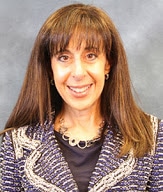Well, Well, Well! Why is this night different from all other nights? I know, it isn’t Passover! On all other nights our prayers begin with praises to G-d, but on this night we do not begin with praises to G-d. Perplexing indeed! What’s more, this holiest day of the Jewish year, a day when we confess our sins and ask forgiveness, does not begin with asking forgiveness from G-d for our sins! That, after all, is the theme of this Day of Atonement! No, this service begins, instead, with the recitation of Kol Nidre. Do you realize that the Kol Nidre, doesn’t even mention G-d? Do you realize Kol Nidre doesn’t even mention sin? Do you realize Kol Nidre doesn’t even mention forgiveness!? Do you realize Kol Nidre is not even a prayer, in any sense of the word: “All vows, bonds, pledges promises, pacts, obligations and oaths that we have imposed upon ourselves—we regret them. Let them all be released! Forgiven! Erased! Made null and void! They are not valid! They do not exist! Our vows are not vows, our bonds are not bonds, our oaths are not oaths. That is no prayer. That is a statement. That is a declaration. We don’t PRAY to G-d to be released from our vows. In reciting this formula, we release ourselves. Why would the rabbis have chosen THIS to begin the holiest day of the year? In order to understand the reason, let’s remind ourselves of the story of Jacob meeting Rachel at the well. Jacob runs away from home after he has stolen Esau’s birthright. He travels to Haran, in search of the family of his mother, with whom he hopes to seek refuge. He comes to a well in a field. There is a large rock on the mouth of the well. There he sees three flocks of sheep about to drink from the waters of the well. All of the shepherds gather to remove the large rock, they water their sheep, and they return the large rock to the well. Jacob then sees Rachel coming with her flock. He goes to the well, and, BY HIMSELF, he rolls the rock off the well. What took many shepherds to do, Jacob does all by himself! Many commentators note that this was a show of strength meant to impress Rachel. But the Sfat Emet, in his commentary, provides another interpretation for this seeming superhuman feat. He understands the well to be more than just a well, but symbolic of the source of life. The rock on the well, according to the Sfat Emet, functions as a metaphor that symbolizes those things that block us from drinking from the nourishing waters of life. Our challenge in life, says the Sfat Emet, is to do what Jacob did – to summon all of our strength to remove whatever blocks us from access to these life giving waters. What are the things that block us from reaching these life giving waters? What impediments are there in our lives that get in the way of drawing nourishment from the Source of Life? This Kol Nidre evening, I would like to focus on three of those barriers – regrets, envy, and anger. The story is told of two monks who were walking through the forest. They came to the bank of a fast moving river and saw a beautiful woman standing on the edge of the bank. The woman told the monks that she was afraid to cross the stream because she might slip and be carried downstream. She asked if one of them might help her across. Now these monks had taken a vow of chastity and had vowed never to even touch a woman. Yet the older monk felt sorry for the young woman, and lifted her on his shoulders and carried her across the river. The young woman thanked him and went on her way. The two monks continued on their journey. After two hours the younger monk turned to the older one and said, “How does it feel to have broken your vow after so many years? What was it like to carry such a beautiful woman? Do you regret what you did? The older monk remained silent for several steps and then said, “It is you who should tell me what it is like to carry such a beautiful young woman. You see, I put her down three hours ago at the stream — but you are still carrying her.” Well, some of us are still carrying around regrets from YEARS ago! Some of us regret that we did not study as hard as we could have in high school or college. Some of us regret we were not more assertive in a particular situation. We regret we did not have more self discipline, we regret we didn’t take more risks, we regret we didn’t spend more time with our families. Some of us regret we didn’t stop smoking last year, or didn’t watch our diet, or keep with that exercise program we started with such high hopes. There is nothing we can do about those things now. They are in the past. Yet we still carry regrets about them around. With the recitation of Kol Nidre we release ourselves from promises not kept, from actions not taken, from ambitions not realized. What other barrier besides regret blocks us from the life giving well? Envy is a very common human emotion. Envy is the feeling that surfaces when you see other people having what you do not have, doing things that you cannot do. Envy focuses on what we feel that we lack. Chicago author Joseph Epstein writes that “Envy asks one leading question: What about me? Why does he or she have beauty, talent, wealth, power, the world’s love, and other gifts, or at any rate a larger share of them than I? Why not me?”[1] In many ways, we live in a society that stimulates envy. We see models on television or in magazines who are more beautiful or more handsome than we are, and we are urged to buy products that promise us we can look more like they do. Advertising stimulates our desire for bigger homes, nicer cars, and fancier vacations. The media promises us that we will be happier and more satisfied in life if we reach for more. But we don’t only envy material advantages of the other. Epstein includes a cartoon in his book of two women having tea. One says to the other, “I envy you – I wish I were close enough to my family to be estranged.” The United States makes up about 6% of the population of the world, and we use half of the world’s national resources. You would think that would make us the happiest people of all time. But we are only twelfth happiest in the world according to a Gallup Poll. Israel, with all of its problems, is five places ahead of the United States in the happiness index. Perhaps one reason we are not happier as a nation is that as soon as we achieve something, or get something, we want to move onto the next thing. This constant pursuit of “more” leads to chronic dissatisfaction. How can we roll the stone of envy from the mouth of the well of life so can enjoy what we have? In a well known experiment, psychologist Robert Emmons of the University of California took three groups of volunteers and randomly assigned them to focus on one of three things during the week: The first group was told to focus on everything that went wrong for them. The second group was told to focus on things they were grateful for. The third group was told to focus on everyday events. Those who focused on the things they were grateful for reported higher levels of alertness, enthusiasm, determination, attentiveness and energy compared to the group that focused on what went wrong or the group that focused on every-day events. Focusing daily on what we have, on what we are grateful for, on the blessings in our lives, is one of the keys to conquering envy. The Hebrew word for “Jewish” – Yehuda – comes from the word for “gratitude” – Ho-dah-ah. To be a Jew is to be thankful for all that we have, and to be grateful for even the smallest kindness bestowed upon us by our fellows and by G-d. To roll away the stone of envy from the mouth of the well we must appreciate the blessings we enjoy. We need to stop looking at the next person to measure our happiness by. In addition to regrets and to envy, perhaps the largest stone that is blocking our entry to the well of life is the stone of anger. We are angry at people who we feel did not treat us right. We are angry at our spouses who we feel did not meet our needs. We are angry at our parents who we feel did not give us the proper guidance, or support us in our decisions. We are angry at our children who did not make us proud enough of them. And most of all, we are angry at G-d, because G-d did not make this a fairer place to live. During the Holocaust, a story was told of a rabbi in Auschwitz who said to his followers, “There is a possibility that G-d is a liar.” His disciples, shocked at the blasphemy, demanded he explain himself. “Because when G-d looks down at Auschwitz, He says, ‘I am not responsible for this.’ And that is a lie.” Some people hold G-d responsible for many of the problems in their lives. When they confront a serious illness, when there is a terrible accident, they wonder where G-d was, why G-d did not step in, why G-d did not intervene. Like the rabbi in the story, they hold G-d ultimately responsible for their suffering. These thoughts can even keep some of us away from our synagogue during the year. Unless G-d apologizes to them, they have nothing to say to G-d. That anger is a great impediment in their relationship with G-d. I know most of you have heard of Rabbi Harold Kushner. He is the author of “When Bad Things Happen to Good People”. He tells us that the most frustrating question for him over the years has been when an involved member of his congregation comes to him after a tragedy and asks, “Rabbi, if this could happen to my family, what was the point of coming to synagogue all these years?” These congregants have led moral lives, they have contributed to the synagogue financially, they pray regularly, and they feel that their reward for all of this is — heartache. They are angry with G-d. Rabbi Kushner has developed a response to their anguish, their feeling that G-d has betrayed them. First, he teaches, it is a mistake to think that G-d controls our lives. The world is created a certain way, with certain natural laws, and G-d doesn’t control everything. There are earthquakes and volcanoes and hurricanes, and if you live in an area prone to earthquakes, volcanoes and hurricanes, there is a chance you may be hurt, or even killed. There is a chance you may lose your home, no matter how good a person you are. The world contains viruses and bacteria, and these can be helpful to mankind, but they can also be the cause of disease. G-d endowed people with free will, and people act, sometimes, in ways that hurt one another. We should be angry at G-d for giving people free will? We have a need for a god that is kind of like a superhero, says Rabbi Kushner – all knowing, all powerful, a god who can protect us from all evil, who can fix anything that is broken. We compare G-d to a King, we call G-d “Our Father”, but G-d says, “That’s your idea of G-d, but that is not Who I Am.” G-d says that making the planet a better place is the job of human beings, not the job of G-d. G-d says, “I will do it with you, I will be a partner to you, but I won’t do it for you.” G-d’s role is to inspire us to find the cure for disease, to motivate us to strive to eliminate war, to provoke us to work to eradicate poverty, to be a source of strength and determination in our struggle against the many ills that beset our world. If we think about G-d in this way, perhaps we will not be so angry with G-d. We might still be angry, but our anger will be directed against the right things, the things we can do something about. Let us resolve to be thankful to G-d for giving us the gift of reason and the gift of love. We cannot expect G-d to solve the problems of the world, to sit back and wait for G-d to do what G-d has given us the tools to do ourselves. As one rabbi put it, “Faith is not meant to be a narcotic but a stimulant: it is a call to action, not a substitute for it.”[2] Jacob rolls the large rock that is blocking the well. We now understand the hidden meaning in this simple, yet rich, biblical scene. The well represents the fountain of life, the life giving spring from which we drink and constantly renew ourselves. The rock represents everything in our lives that block us from drinking from those life renewing waters. The rock is made of our regrets that keep us stuck in the past. We declare, through our recitation of Kol Nidre, that we are prepared to leave the past behind, that we are moving on to the new year with a clean slate. Our envy of others is a heavy load that we must remove if we are to connect to the Source of Life. We declare, through our recitation of Kol Nidre, that we are ready to banish all envious feelings by being grateful for what we have. Finally, our anger at others and at G-d keep us from enjoying all of the blessings of life. Through our recitation of Kol Nidre – we declare that we desire to move beyond our anger. We affirm that G-d isn’t the cause of our struggles and our suffering; G-d is with us in our struggles and our suffering. I would like to conclude with a prayer by my rabbi, my mentor and my friend Rabbi Sheila Pelz Weinberg: Dear G-d, Open the blocked passageways to You, the congealed places. Roll away the heavy stone from the well as your servant Jacob did when he beheld his beloved Rachel. Help us to open the passageways to blessings that have been jammed shut with regret, envy and anger. As You open the blossoms in spring, Even as you open the heavens in storm, Open us – to feel your great, awesome, wonderful presence.[3]



